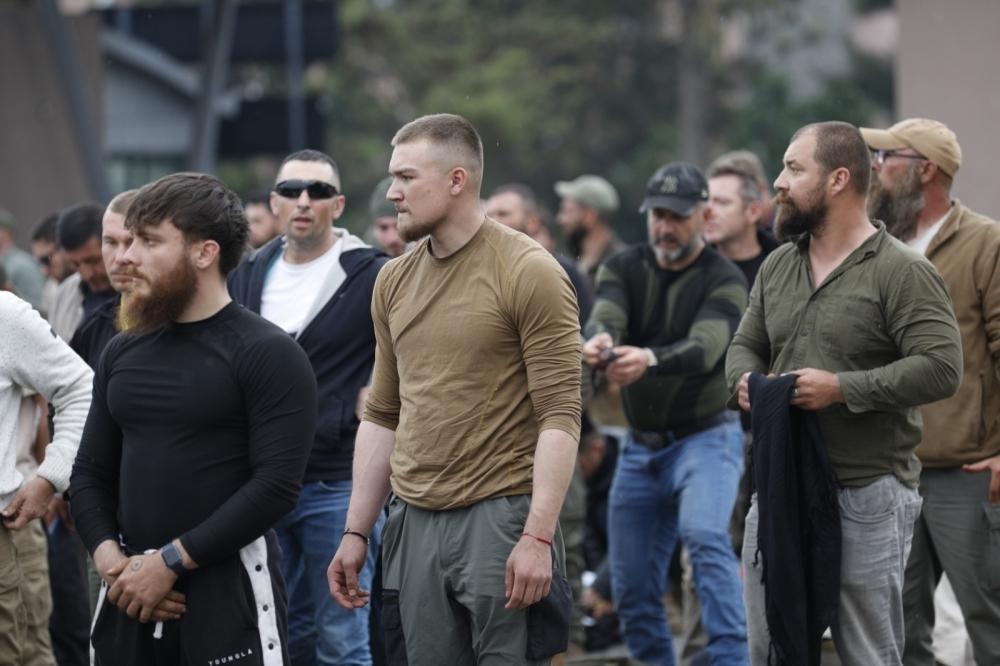Africa-Press – Rwanda. An investigation by the Romanian ministry of defence has found that hundreds of active-duty soldiers and reservists worked in DR Congo as mercenaries, European media reports said.
In the war with M23 rebels in eastern DR Congo, the government coalition included 1,500-2,000 Eastern European mercenaries. The use of mercenaries in armed conflict is prohibited by United Nations and African Union conventions.
The Romanian Ministry of Defence discovered that hundreds of reservist soldiers signed contracts with private security companies operating in DR Congo after being transferred to the reserves, Euractiv, a Brussels-based media organisation reported on Friday, April 4.
The state inquiry also found that some active-duty soldiers while on parental leave had fought as mercenaries in DR Congo.
Some 24 reservists who had worked for private security companies in Congo were reinstated into the military in 2023-2024 and are now assigned to various units within the Ministry of Defense, the reports said.
Close to 300 European mercenaries, some of who had fought in the French Foreign Legion, surrendered to the M23 in late January after the rebels took control of Goma, the capital of North Kivu province. They were granted safe passage through Rwanda, before they took flights to their respective countries.
Up to 466 Romanian soldiers who had been transferred to the reserves – due to reaching the age limit, resignation, or medical reasons – engaged in security-related activities in Congo, the Euractiv news report said.
“Furthermore, seven active-duty military personnel were identified as having ‘unjustly’ worked in the DR Congo between 2023 and early 2025 while on legally granted parental leave for children up to two years old,” Euractiv reported.
The investigation revealed that these soldiers had violated multiple legal and regulatory provisions, including leaving the country without authorization and engaging in activities outside their official military duties.
Of the seven, three remain on parental leave, while the other four have returned to their units.
The case of one soldier has already been referred to the Military Prosecutor’s Office, and similar legal actions will be taken against the remaining six.
Meanwhile, disciplinary and administrative procedures are said to have been initiated, pending the prosecutor’s decision regarding possible criminal charges.
The Romanian defence ministry maintained that the reintegration of the 24 soldiers, who had been involved in mercenary activities in DR Congo, does not pose “significant national security risks,” as they hold lower-ranking positions with minimal access to classified information.
The Minister of Defence Angel Tîlvăr was quoted as saying that he had ordered “an urgent review of the circumstances and responsibilities that allowed these situations to occur, as well as the implementation of stricter preventive measures in the future.”
VIDEO: European mercenaries at Kigali International Airport to return to Romania
The European mercenaries fought alongside the Congolese army, Burundian soldiers, SADC forces, and militias such as the FDLR, which is linked to the 1994 Genocide against the Tutsi, and local groups known as Wazalendo.
The Congolese government faced criticism for hiring mercenaries in violation of the 1989 UN International Convention against the Recruitment, Use, Financing, and Training of Mercenaries and the 1977 Convention for the Elimination of Mercenarism of Organisation of African Unity (OAU), the precursor to the African Union.
Rwanda, which expressed its security concerns about the Congolese government coalition’s intention to attack its territory, also criticized the international community, and European countries in particular for ignoring the use of mercenaries in the eastern DR Congo conflict.
For More News And Analysis About Rwanda Follow Africa-Press






